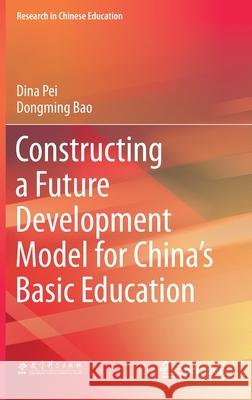Constructing a Future Development Model for China's Basic Education » książka
topmenu
Constructing a Future Development Model for China's Basic Education
ISBN-13: 9789811573323 / Angielski / Twarda / 2020 / 356 str.
Kategorie:
Kategorie BISAC:
Wydawca:
Springer
Seria wydawnicza:
Język:
Angielski
ISBN-13:
9789811573323
Rok wydania:
2020
Wydanie:
2020
Numer serii:
001130875
Ilość stron:
356
Waga:
0.69 kg
Wymiary:
23.39 x 15.6 x 2.24
Oprawa:
Twarda
Wolumenów:
01
Dodatkowe informacje:
Wydanie ilustrowane











